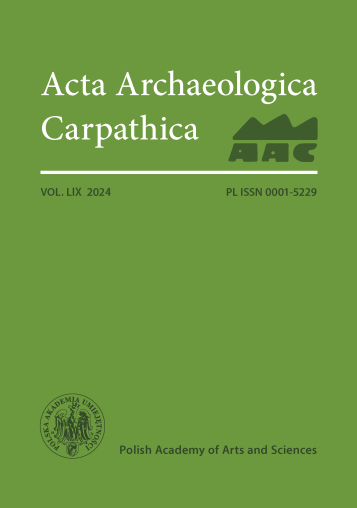
We kindly inform you that, as long as the subject affiliation of our 300.000+ articles is in progress, you might get unsufficient or no results on your third level or second level search. In this case, please broaden your search criteria.


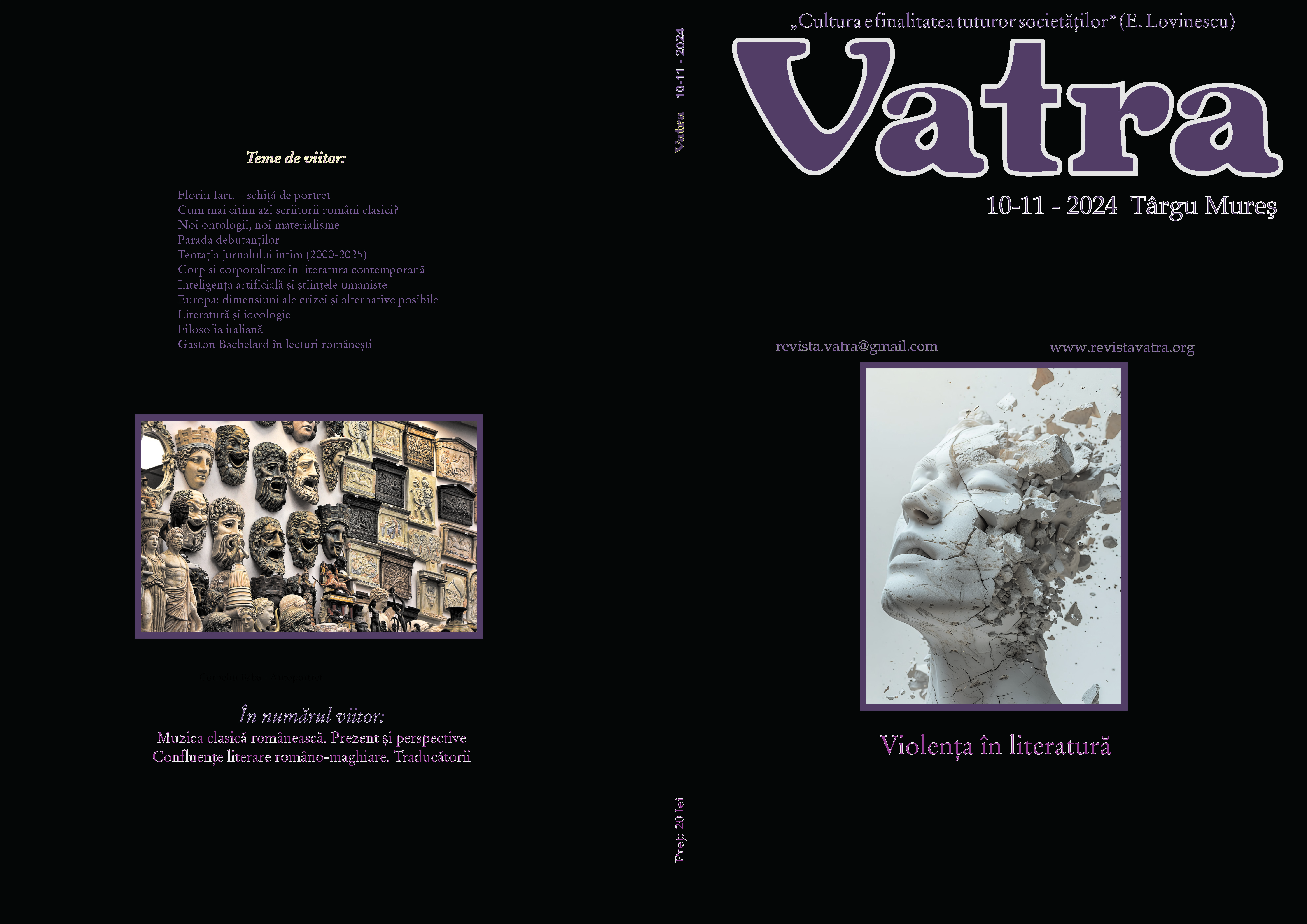
This paper explores the cultural and historical significance of the Romanian rock band Phoenix during the period 1967–1977. It examines their role in shaping countercultural movements, their engagement with folklore and modernity, and the socio-political impact of their music. By analyzing their evolution, influences, and reception within Romanian society, the paper highlights how Phoenix functioned as a cultural phenomenon that intertwined musical innovation with resistance against ideological constraints.
More...

This dossier explores the work of Corin Braga, highlighting its intricate narrative structures, dreamlike atmospheres, and philosophical depth. Braga’s novels (Noctambulii, Claustrofobul, Hidra, Luiza Textoris, Ventrilocul) blend dream logic with literary intertextuality, crafting narratives where identity, memory, and perception dissolve into surreal landscapes. His characters navigate liminal spaces between reality and the subconscious, engaging with archetypal and anarchic structures that challenge conventional storytelling.
More...
This paper explores The Bad Girl by Mario Vargas Llosa, a novel that intertwines love, destiny, and the clash of contrasting personalities. Following the lifelong obsession of Ricardo Somocurcio, a stable and romantic man, for the enigmatic and elusive Lily, the novel traces their encounters across different historical and cultural settings—from 1950s Lima to Paris, London, and Tokyo. Through Ricardo’s unfulfilled love, Vargas Llosa examines themes of passion, ambition, and the inability to reconcile emotional and material desires. The novel also reflects on the socio-political transformations of the second half of the 20th century, offering a unique perspective on love beyond ideological and social constraints.
More...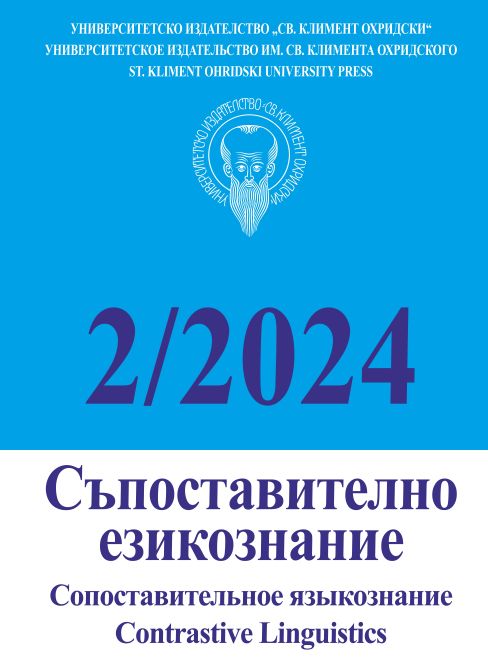
Book Review: Мартин Стефанов. Номинализацията на предиката в сръбския и българския книжовен език от края на XIX и началото на XX век. Електронна публикация. Факултет по славянски филологии. Филологически форум – Experior, ноември 2023, 240 с. Martin Stefanov’s monograph examines the processes of nominalization of the predicate, but the author has set himself the goal of doing this in a comparative plan between the Serbian and Bulgarian languages, at the end of the 19th and the beginning of the 20th century. Both nominalized constructions and periphrastic predicates are explained in detail. The main stylistic and textual characteristics of the nominalizations are also presented.
More...
Book Review: Константин Куцаров. Българските лексемни класове и учението за частите на речта. София: ИК „Колибри“, 2022, 350 с. ISBN 978-619-02-1031-3. The review is focused on the innovative ideas and findings in the monograph by K. Kucarov: the contemporary view of the classification of lexemes into part-of-speech-classes and the highlighting of the categories discursive and determinative; novel interpretations of some verbal categories and their grammemes in Bulgarian.
More...
Book Review: Юлияна Стоянова. Проблеми на психолингвистиката. София: УИ „Св. Климент Охридски“, 2021, 575 с. ISBN 978-619-7433-51-7. The review presents the achievements and contributions of Yuliana Stoyanova’s monographic study “Problems of Psycholinguistics”, a significant part of which is devoted to presenting her own research in the field of developmental psycholinguistics. Following the logic of her lecture course for speech therapy and pedagogy students, developed over 3 decades, Yuliana Stoyanova’s book combines classical grammar and new psycholinguistic achievements, offers a very rich overview of what has been done in world and Bulgarian developmental psycholinguistics, arranges and explains the seemingly illogical children’s language into clear categories. The result is a truly complete, fully- fledged and modern psycholinguistic study of early ontogenesis, the likes of which has not been available in our linguistic community until now.
More...
Book Review: Иван Георгов. Значение на детската лингвистика. Трудове на проф. д-р Иван Георгов по психолингвистика на развитието. София: УИ „Св. Климент Охридски“, 2023. 394 с. This review focusses on a revised and updated edition of a seminal Bulgarian academic work by Prof. Ivan Georgov. His contribution to general and child linguistics is far less-known than his works on philosophy and ethics. The editors, Yuliana Stoyanova and Yuliya Yordanova-Pancheva, set themselves the task of updating and republishing the most important research on the ontogenesis of language by this early twentieth-century scholar, thus making it available to researchers, specialists and students from the fields of linguistics, psychology, pedagogy, speech therapy, philosophy, etc.
More...
Book Review: Ивета Ташева. Медицинска хуманитаристика. Теми, термини, превод. София: Сиела, 2022. 164 с. The text presents the first work by a Bulgarian author dedicated to the under-studied area of medical humanities in our country. An overview of the thematic content of the book, as well as its structure, is offered. The strengths of the book are highlighted and the readership for which it will bring the most substantial benefit is identified. Argumentation is provided for recognizing the monograph as a pioneering work in the chosen scientific field.
More...
Диляна Денчева. Фразеологизмите в съвременната българска поезия. София: УИ „Св. Климент Охридски“. 2023. 198 с. The reviewed monography by D. Dencheva is a contributing study in the fields of Bulgarian stylistics and phraseology. The author analyzes rich empirical material from the texts of contemporary Bulgarian poets and makes generalizations about the ways in which phraseological units function in the complex fabric of the poetic text. The author does not use an established theoretical framework, but in the course of the research develops her own methodology, which, together with the in-depth readings of the individual texts, takes us through the intricate ways in which phraseological units fit into modern Bulgarian literature.
More...
Book Review: Милена Йорданова, Ирина Саръиванова (съст.) 70 години специалност „Тюркология“ в софийския университет „Св. Климент Охридски“, София: УИ „Св. Климент Охридски“, 2022, 325 с. The purpose of this review is to describe the results of celebrating 70 years of the “Turkic and Altaic Studies” Department at Sofia University “St. Kliment Ohridski”. The collection presents research in the field of linguistics, literary studies, language teaching and didactology, history and cultural studies in the field of Turkic studies.
More...

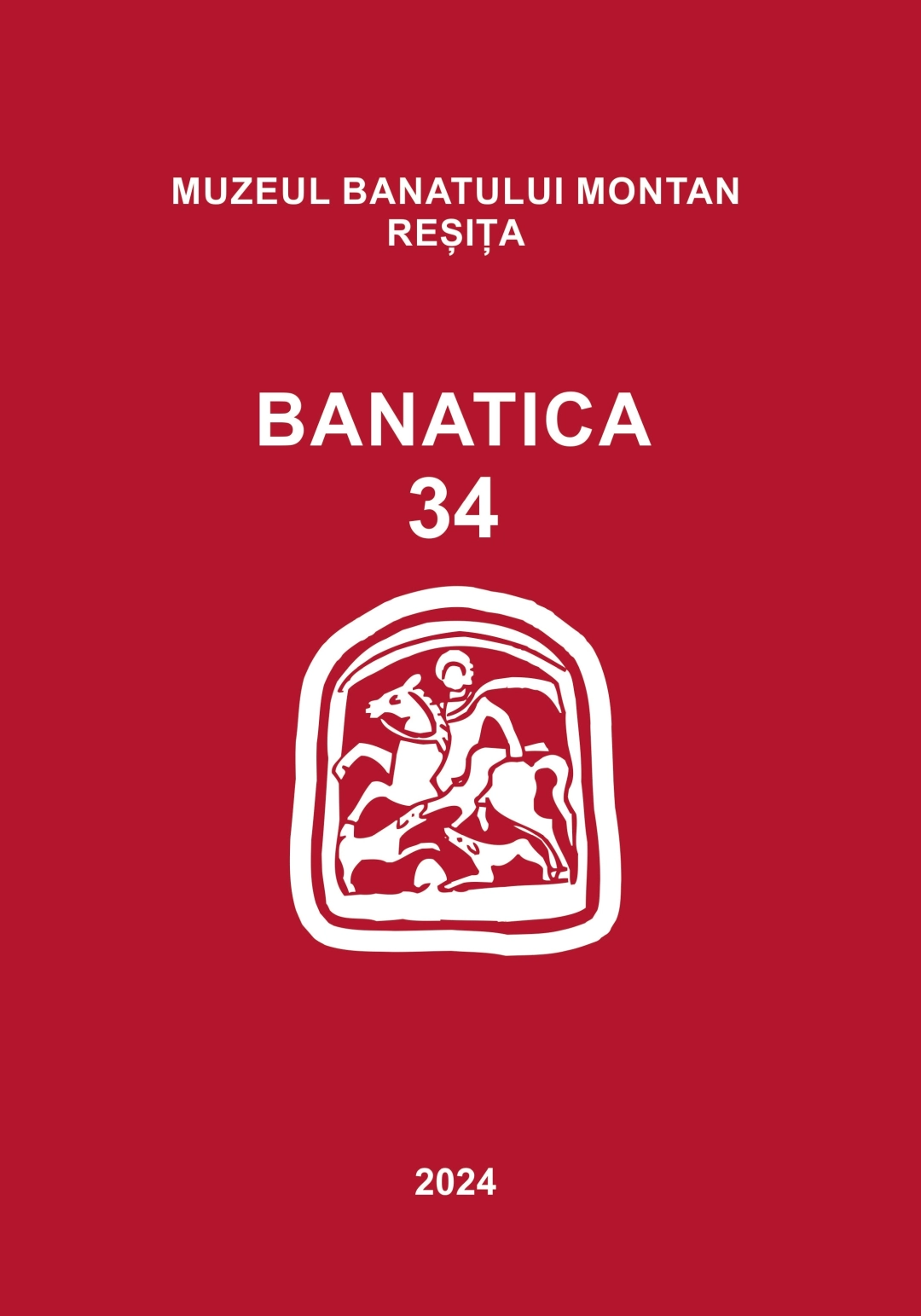
Book review. The pages published in this volume include only the first part of Alexandru Borza's autobiographical work, specifically the section concerning his childhood, education, and the early years of his teaching career (1887–1919). This was the only part accessible to the editors, as it is preserved at the National Museum of Unification in Alba Iulia. The complete manuscript remains in the possession of Professor Borza's descendants.
More...
Book review. Emanuel Copilaş, Romania's Integration into the Soviet Sphere of Influence (1944–1947). International and Local Perspectives, Corint Publishing House, Bucharest, 2023, 540 pages
More...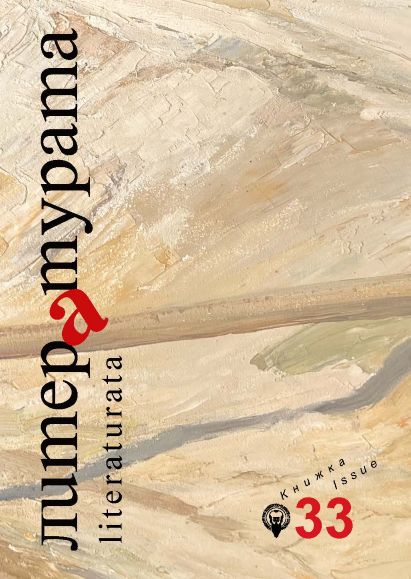
Book Review: Ташева, Ивета. Езикът на лекарите днес. София: УИ „Св. Климент Охридски, 2024. 144 с. ISBN: 978-954-07-5914-2. The review marks the emergence in our country of an important study on the links between medicine and linguistics, looking at the language of doctors and developing the field of medical humanities.
More...
Book Review: Басат, Емил. Радостите и тегобите на българската бохемистика. Портрети на преводачи. София: Парадигма, 2023. 478 с. ISBN 978-954-326-520-6. With this book, the author Emil Bassat tries to cover the images of Bulgarian translators from the Czech language. In portrait-surveys conducted entirely on the Internet, he presents us the best Bulgarian bohemians who have dedicated their lives to translation work. Without pretensions to comprehensiveness, the book also reflects Bulgarian-Czech cultural contacts. According to the author, this is a “book-confession of love for the Czech Republic and Czech culture” and he hopes that it will arouse interest among the bohemian community in Bulgaria, and also among all those who are interested in the reception of Czech literature in our country.
More...
The text examines Todor P. Todorov’s novel “Hagabula” through the prism of two concepts of world literature constructed by Johann Goethe (in the past) and more recently by David Damrosch. Using their concepts of world literature as a starting point for its analysis (the choice falls on them because they are authoritative), the text attempts to answer the question “Is “Hagabula” global?”, or more precisely, does it have the potential to become so, to enter the world canon?
More...